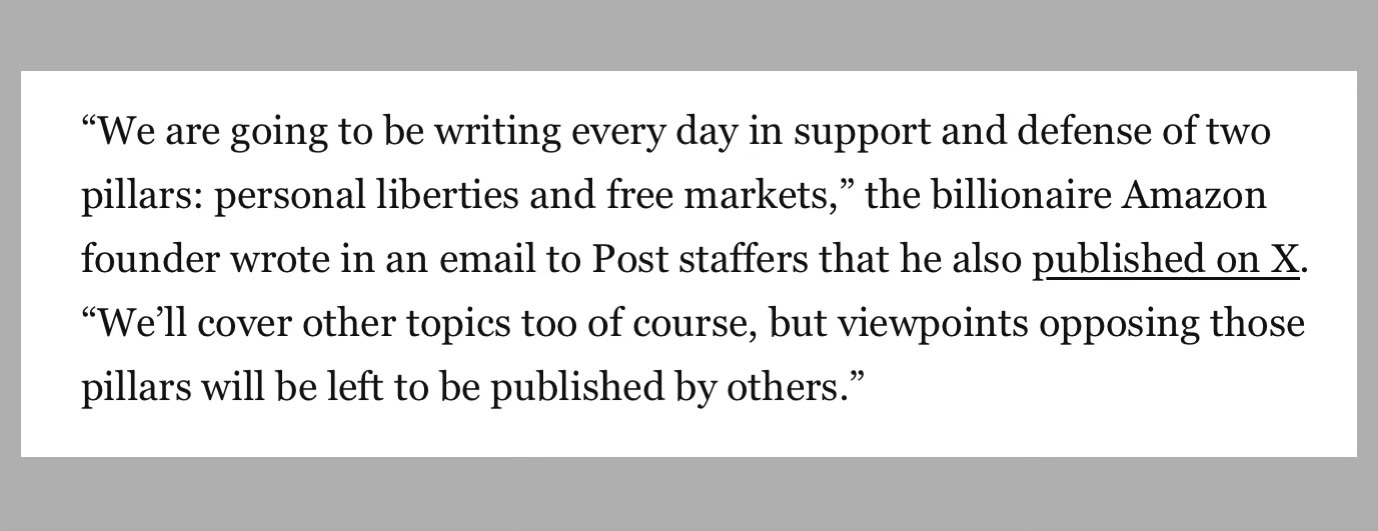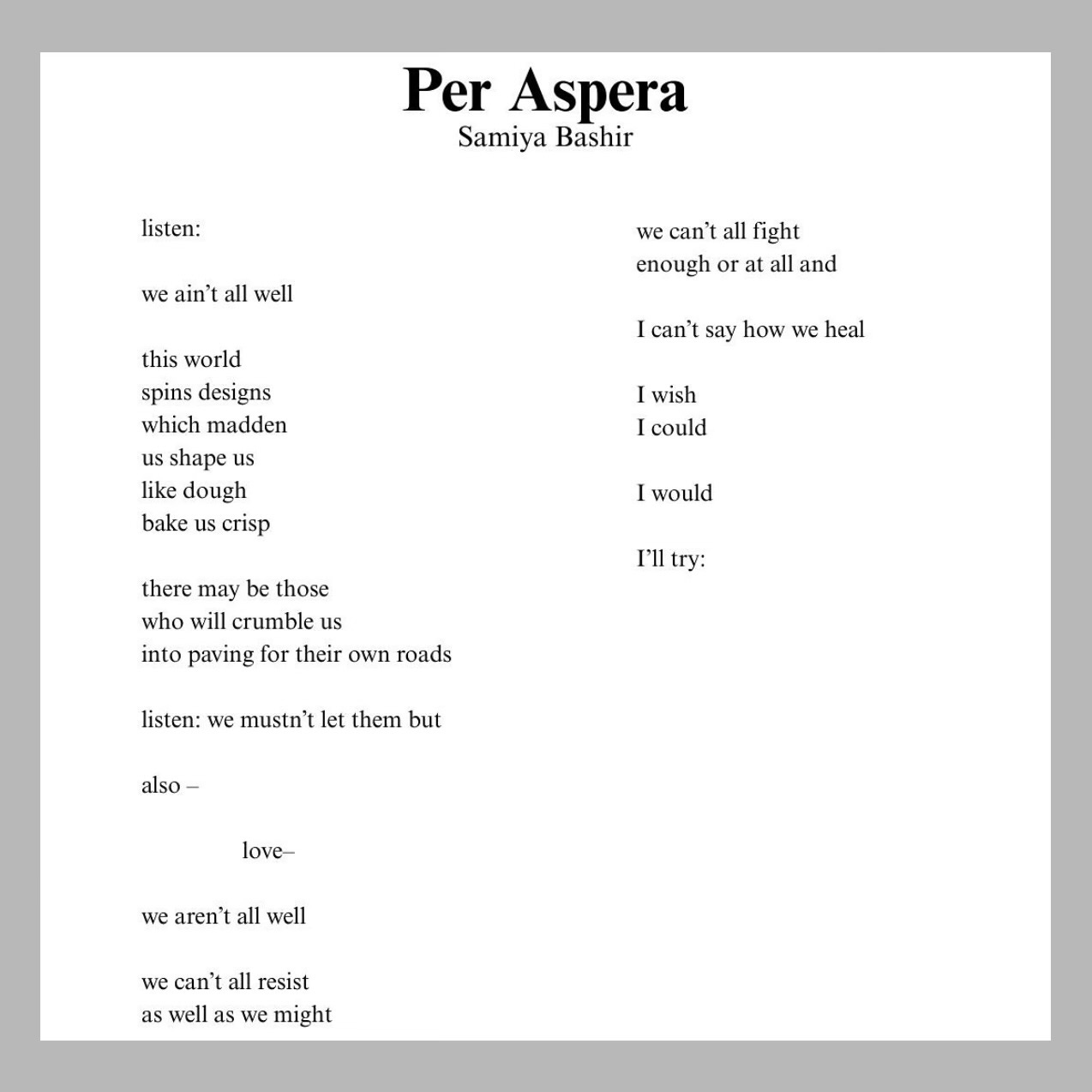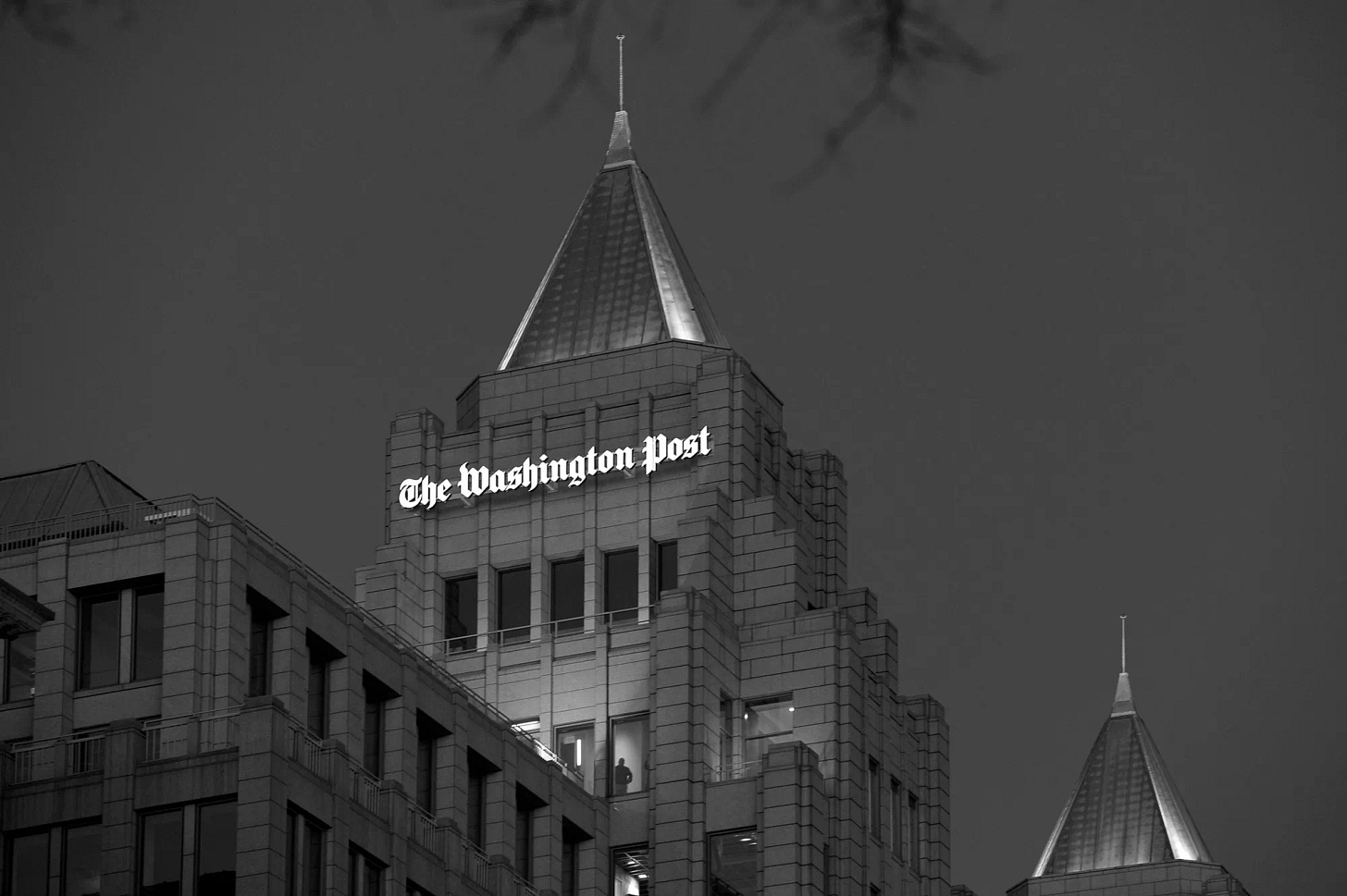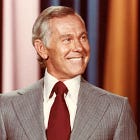I quit (my tiny assignment at) The Washington Post
Making work and life choices at the end of the world
I don’t know about you, but I’m having a real hard time keeping up with my favorite newsletters these days. CAN’T IMAGINE WHY. So, if you’re anything like me, you might’ve missed these two recent posts:
I’m not an activist. I’ve had to say this aloud this year, even though I have known this all my adult life. Although I have strong opinions, I have rarely known what to do with them when it comes to the state of the world, our country, the losers who are in charge. I rarely know how to put them into action beyond supporting the work of real activists and by that I mean sending small amounts of money irregularly.
At this point, five years since Covid, ten years since the series finale of America began, I’ve given up thinking I will ever again remember what day it is or not experience a mutual pause when asking or being asked, “How are you doing?” There is the individual and then there is the state of things.
I don’t know what would begin to count as doing enough right now. Individual actions have never seemed smaller yet what choice do we have? Doing nothing was theoretically never an option but now it feels truly existential, like, maybe this is our last chance to do something as Americans. Not just until the midterms or until the next general election (if there ever is one again), but forever.
If you consider this dramatic, who would’ve thought ten years ago that Roe would actually be overturned? That human beings here legally would be disappeared off the streets? That Canada—notoriously nice Canada—would be booing our national anthem?
I’ve been working through some of this with a great friend, someone who is an actual activist. She engages in causes and community work in a range of ways. She actively works on being connected with others and being the canary in the coal mine for people like me who perhaps aren’t always understanding the gravity of what could happen, what’s to come.
She said something to me last month that stuck: not everyone needs to be a capital A activist, we all have something we can do, something we can leverage in this moment. Not everyone is going to demonstrate or speak at rallies or literally set things on fire. But we all have different levers to push and pull on. Why not try everything? Why not try what’s right in front of each one of us first?
The day after she said this, a 25-year-old snow reporter here in Vermont put her job on the line and proved my friend’s point exquisitely. From The Valley Reporter:
“Lucy Welch, Sugarbush’s snow reporter [wrote] a March 1 snow report that voiced her concerns about the policies of the current political administration in Washington, DC, that was candid, honest and sincere. The report was published as Sugarbush prepared for Vice President JD Vance and his family to come skiing and while The Valley prepared for protests. That snow report, posted and emailed to subscribers at 6:31 a.m. (followed by a shorter recording on the resort’s snowline) were removed from the resort’s website fairly quickly, but not before screengrabs and shares sent her words around the world at the speed of the internet.”
You can read her excellent post in full here. What spoke to me personally toward the end of Lucy’s post is this:
“I am in a privileged position here, in that I work only seasonally, I do not rely on this job for health insurance or benefits, and hey, waking up at 4:30 a.m. isn’t exactly sustainable. Therefore, I am using my relative ‘platform’ as snow reporter, to be disruptive – I don’t have a whole lot to lose. We are living in a really scary and really serious time. What we do or don’t do, matters.” [emphasis mine]
That’s when I realized I needed to think about how to use my own relative platform. And I needed to start examining my behavior, choices, and partnerships. Who I’m working with. Which brands I’m aligning myself with. And where I’m spending my money, too.
Although I’ve done this on a small and sporadic scale since my children were babies, I had never taken my work life on as a whole, to analyze that work as an important reflection of my values. That’s probably because when you work in advertising (or brand or design) and began doing this work in the nineties, when the hell did values ever come into it? It’s advertising, people. You’ve seen Mad Men, right? Like, please, don’t make me laugh. It was good money, it was incredible stress wrapped in crazy fun, with occasional stops to cry in the bathroom. But still, as tours of duty go, it was grownup camp.
It can be easy to forget that not so long ago the values of a brand—or who even owned a brand—were irrelevant. Who paid attention to CEOs? Who even knew who they were? Who cared? People just wanted a good product, a good service, and maybe a good brand.
In the 1970s with the arrival of discount department stores then the internet in the 1990s, we began a race to the bottom. Away from good and toward the cheapest and the fastest. Toward the least bad thing. From the DNC to social media platforms to the politicians we’ve ended up with, we’ve become so used to this enforced choice—the least bad thing—that we’ve given up expecting anything good at all.
Let me get to the point.
Much like I am not an activist, I am not a journalist. Every once in a while someone will refer to me as a journalist and I am quick to correct them, I have too much respect for actual journalists. So when I tell you that I have ended my work relationship with The Washington Post I want to be crystal clear that I was never staff and my role there, as an occasional reviewer of books for Book World, could not have been tinier. A couple reviews a year at most.
Still, I loved it. I loved it so much. I loved being asked to review a book, I loved reading the books, I loved trying to figure out my way into a review. If you had told me, back when I was in high school and didn’t think I could write or back in college when I was an art major that one day—in my fifties no less!—I would be reviewing books about marriage and sex and women’s fantasies for The Washington Post I wouldn’t have believed you. I wouldn’t have understood how my path could’ve possibly taken me there.
This is what’s painful about the people we now have in charge of seemingly everything. They don’t care what individual lives look or feel like. From park rangers to longtime civil servants to those doing humanitarian work around the globe to students coming from other countries to learn and be in community with Americans, they do not care. How happy we are or are not is irrelevant. How we search for meaning—beyond money—could not matter less.
But it matters to each one of us. It matters to me. These are our lives.
Up until a couple of weeks ago, I had weathered every Jeff Bezos-related uproar. The union busting. The Amazon of it all. I actually did a small project for Amazon last year because money. I remained a subscriber of The Washington Post. I kept writing book reviews. I kept believing, and still do, that it was important to show both my financial and professional support for staff who work at The Washington Post. There are precious few newspaper jobs in our country, this has never been lost on me. Quitting one’s job to make a point is not a choice that most people can make or even want to make.
I didn’t want to cancel my subscription to The Washington Post either but I did. Bezos kowtowing in advance to Trump, starting when he killed The Washington Post endorsement of Kamala Harris, and most recently when he announced the below changes to the opinion section, were the last straw.

To be clear, my choice was easy to make when it came to financial impact. The income I received from those book reviews made up .01% of my 2024 income. But that isn’t the point. I liked it. I loved it. I wish I could still do it. I hate that I won’t be doing it anymore.
I used to wonder how citizens of other countries didn’t know they were being lied to. I used to wonder how citizens of other countries didn’t know they weren’t getting the full picture of what was happening in their own country. I used to wonder how citizens of other countries could calmly stay, with restricted freedoms, with blatant propaganda, with state violence. Now I know. This is how it happens.
As for the way I make the other 99.99% of my income? I posted this on LinkedIn and felt nauseous when I did. Vowing to not work with brands—big brands—who’ve reversed their positions on diversity, equity, and inclusion is existential at this point. I’m a freelancer. Turning down work is, you know, not my thing. But these are the levers I have, and these are the ones that carry much greater personal risk.
I’ve since heard from employees of some of the brands I listed, sharing off-the-record that their company policies haven’t changed but that their outward-facing language has. I don’t know how to feel about that. On one hand I understand it from a business perspective, on the other isn’t that folding in advance all the same? I’m not sure. I’m obviously not a CEO.
What makes a brand “good” anyway? Are we talking politics? Diversity? Labor practices? Durability of products? Quality of services? Extraction or use of natural resources? Actively exploiting personal data? Planned obsolescence? Supporting unions? Maybe if we ever had a government that policed industries in any sort of real and ethical way we wouldn’t be relying on all these foxes in the hen house to outline their own policies regarding how many foxes should be allowed to be in hen houses.
Not to mix my animal metaphors, but the longer us frogs soak in this decade-long boiling bath, the more we need to question the premise that companies and billionaires have the will or capacity to be good at all. It seems now that the saying should be: to those who have been given much, nothing is expected. It’s hard to argue with the current evidence. This headline is already one of the best of the year:

Most of us need to work. At least I do. I have two kids to put through college and alimony to pay. I’m attempting to do all of this while every industry where I make money, or would like to make money, is constricting, transforming, or cratering. This right here, published in The New York Times just two days ago? That’s me and most of my friends. It’s all we seem to talk about.
But we all make hundreds if not thousands of choices over the course of a year, four years, a career, our kids’ lives. From who we work with and align ourselves with, to how we buy books and lightbulbs, to how we step up to this (or any) moment.
I am not an activist. I cannot tell you what to do. I don’t know if what I do will matter at all. But here we are at the end of the world. Let’s make some choices while we still can.
Related Reading
• This piece is an absolute, 10,000%, 5-star, must-read. I tried to find a pull quote, but I would’ve pulled the whole thing. In reading it, I felt like all the sad, raging, confused pieces of my brain finally fell into place to create a crystal clear picture. Plus! Action steps! “This is How We Fall Out of Love with the World: The Twilight of the American Passion Job” by Anne Helen Petersen in Culture Study.
• I never miss an episode of Vibe Check. The latest one includes a rich conversation around brand boycotts and the levers of capitalism when we feel our politicians and our vote no longer matter. Plus: a reading of an incredible poem (at the end of this newsletter) that’s just right for right now. Also? Every episode is funny as hell.
• No part of my life feels untouched right now, including the questionable choices of my alma mater. “University of California Will Stop Requiring Diversity Statements in Hiring” in The New York Times. “‘Diversity statements do not gauge beliefs, but actions,’ said Brian Soucek, a law professor at the University of California, Davis. ‘Attempts to appease those who have been explicit about their intent to destroy higher education as we currently know it are politically naïve. Show me how that worked out for Columbia.’”
• This is another perfect example of using one’s platform and expertise to reveal a fresh angle on the fuckery that’s currently happening. “What happened to MLB's Diversity Pipeline Program?” by Craig Calcaterra in Cup of Coffee
• Interested and terrified by the conversation about this book and where we are now: “‘Red Scare’ revisits the fear of Communism that gripped post-WWII America” on NPR
• This article has had me in a chokehold since I first read it in 2019. I’d love (would I though?) an update of this piece to reflect the current tech and brand landscape: “I Cut the ‘Big Five’ Tech Giants From My Life. It Was Hell” by Kashmir Hill in Gizmodo.
• “The Center for Intimacy Justice (CIJ) released a groundbreaking report that reveals major tech platforms (including Google, Amazon, and TikTok) are routinely suppressing information vital to women’s health, while allowing similar content for men.” Read the report here.
You can find my books here.
You can find more writing here.
You can find my work for brands here.
You can find me wasting time on Instagram and Bluesky.
You could like this post (🖤) and help more readers find it?







That poem at the end...wow. ❤️🩹
Another great newsletter! Thanks for linking to that piece about quitting the tech giants, what a good read.